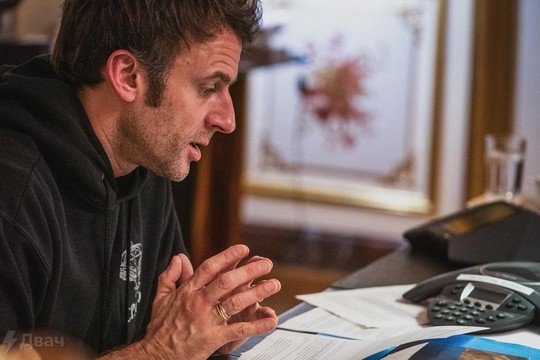French President Emmanuel Macron.
At least Europe no longer has to endure that hackneyed Henry Kissinger quip about whom to call if you want “to call Europe.” No one’s calling anyway.
Of the myriad geostrategic illusions that have been destroyed in recent days, the most sobering realization for anyone residing on the Continent should be this: No one cares what Europe thinks. Across an array of global flashpoints, from Nagorno-Karabakh to Kosovo to Israel, Europe has been relegated to the role of a well-meaning NGO, whose humanitarian contributions are welcomed, but is otherwise ignored, notes POLITICO.
The 27-member bloc has always struggled to articulate a coherent foreign policy, given the diverse national interests at play. Even so, it still mattered, mainly due to the size of its market. The EU’s global influence is waning, however, amid the secular decline of its economy and its inability to project military might at a time of growing global instability.
Instead of the “geopolitical” powerhouse Commission President Ursula von der Leyen promised when she took office in 2019, the EU has devolved into a pan-Europeanminnow, offering a degree of bemusement to the real players at the top table, while mostly just embarrassing itself amid its cacophony of contradictions.
If that sounds harsh, consider the past 72 hours: In the wake of Hamas’ massacre of hundreds of Israeli civilians over the weekend, European Enlargement Commissioner Olivér Várhelyi announced that the bloc would “immediately” suspend €691 million in aid to the Palestinian Authority. A few hours later, Slovenian Commissioner Janez Lenarčič contradicted his Hungarian colleague, insisting the aid “will continue as long as needed.”
The Commission’s press operation followed up with a statement that the EU would conduct an “urgent review” of some aid programs to ensure that funds not be funneled into terrorism, implying such safeguards were not already in place.
As far as the EU foreign policy chief Josep Borrell was concerned, the outcome of any review of assistance for the Palestinians was a foregone conclusion: “We will have to support more, not less,” he said.
To sum up: Over the course of just 24 hours, the Commission went from announcing it would suspend all aid to the Palestinians to signaling it would increase the flow of funds.
The EU’s response to the events on the ground in Israel was no less confused. Even as Israel was still counting the bodies from the most horrific massacre in the Jewish state’s history, Borrell, a longtime critic of the country who has effectively been declared persona non grata there, resorted to bothsidesing.
Borrell, a Spanish socialist, condemned Hamas’ “barbaric and terrorist attack,” while also chiding Israel for its blockade of Gaza and highlighting the “suffering” of the Palestinians who voted Hamas into power.
The Spaniard’s approach stood in sharp contrast to that of von der Leyen, who unequivocally condemned the attacks (albeit in a series of tweets) and had the Israeli flag projected onto the façade of her office.
Those moves immediately drew protest from other corners of the EU, however, with Clare Daly, a firebrand leftist MEP from Ireland, questioning von der Leyen’s legitimacy and telling her to “shut up.”
By mid-week, ascertaining Europe’s position on the crisis was like throwing darts — blindfolded.
Compare that with the messaging from Washington.
Biden noted that he’d called France, Germany, Italy, and the United Kingdom to discuss the crisis. Notably not on the list: any of the EU’s “leaders.”
On Tuesday, Borrell organized an emergency meeting of EU foreign ministers in Oman, where they were already gathering, to discuss the situation in Israel. Israel’s foreign minister, Eli Cohen, declined to participate, even remotely.
The reality is that it will always be easier to lean on Washington than to achieve European consensus around foreign policy and military capabilities.
That’s why Europe’s discussions about security sound more like fantasy football than Risk.
Despite all the rhetoric about the necessity for Europe to play a more global role, not even the leaders of the EU’s biggest members, France and Germany, seem to be serious about it.
As Biden hunkered down in the White House Situation Room to discuss the crisis in Israel, French President Emmanuel Macron and German Chancellor Olaf Scholz were busy conferring in Hamburg.
After agreeing to redouble their efforts to cut red tape in the EU, they took a harbor cruise with their partners.
The leaders celebrated their successful deliberations on a local wharf with beer and Fischbrötchen, a Hamburg fish sandwich. The sun even came out.
But most important: No one’s phone rang…
read more in our Telegram-channel https://t.me/The_International_Affairs

 11:06 13.10.2023 •
11:06 13.10.2023 •























